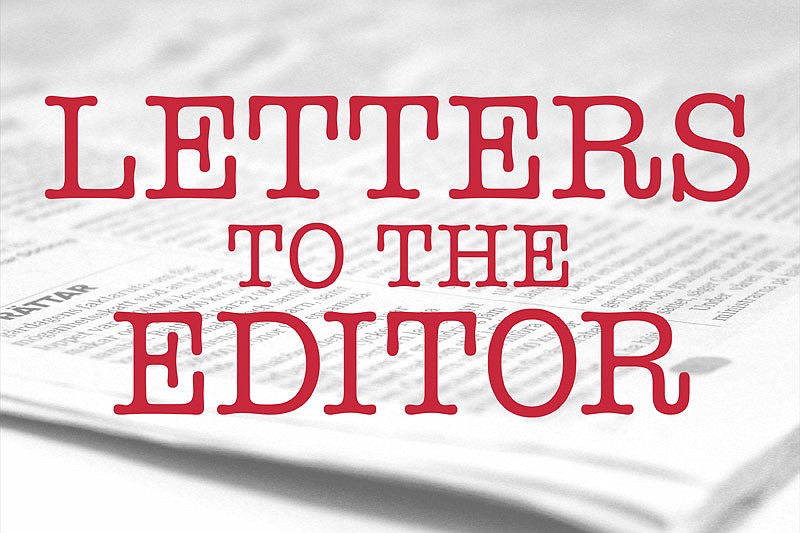- November 23, 2024
-
-
Loading

Loading

Dear Editor:
A few weeks ago, the Pelican Press published an opinion column titled “Recycling as religion” in which the author expressed his view that recycling is a waste of valuable resources and that the county justifies its recycling program with arguments that don’t “stand up to research.”
The author went on to say that the county’s recycling program is an example of “ … government waste at its finest.” Having been involved with solid-waste programs for more than 24 years, I offer a different perspective that will allow your readers to be better informed to judge whether the county’s recycling efforts are justified, worthwhile and appreciated.
In 1988, the Legislature established a goal for the state to recycle 30% of its solid waste, and the residents of Sarasota County soon after voted to establish a local recycling program. The reasons for the program included the cost of building new landfills, preserving our natural lands and waterways and protecting Florida’s wildlife; all goals that continue to make sense today.
Voters adopted Sarasota County’s mandatory recycling ordinance in 1991 and over the years, our community has regularly exceeded the 30% goal.
In 2009, the Florida Department of Environmental Protection (FDEP) Recovered Materials Report showed Sarasota County recycled more than 260,000 tons of materials. That is 260,000 tons of materials not being buried in the landfill, increasing the lifespan of the facility and thereby saving the taxpayers the expense of having to build a new one. Currently, because of our community’s successful recycling efforts, along with proper planning and best practices in solid-waste disposal, there continues to be no need to plan for another landfill.
In direct response to the author’s statements, I offer the following:
The author stated, “The U.S. has more landfill capacity than ever before.” Absolutely correct, the point that was left out is we have more space available, in large part, because of recycling! Less material going into the landfill means less space taken up. In the early ’90s, when recycling was not as prevalent as it is today, population growth and consumption trends led many to believe we would run out of landfill space. Obviously, our recycling efforts have had a positive impact and saved the taxpayers the millions of dollars it costs to build a new landfill.
The author argued that landfills are safe, so why not just bury everything? I agree with the first part; they are safe. But why would we want to go back to burying materials that we can recycle? In addition, those recyclable materials can be sold and reused so, basically, burying items that can be recycled is just like burying money. In 2010, 27,000 tons of residential recyclables collected in the unincorporated county generated more than $1 million in net revenue.
The author stated that new growth in forests exceeds worldwide consumption of wood by a factor of 20. His point is we do not have a shortage of trees, and he is correct. However, I would argue that our paper-recycling efforts have reduced our demand for wood from forests. Recycling one ton of paper saves 17 trees, three cubic yards of landfill space, two barrels of oil, 7,000 gallons of water and 4,100 kilowatt hours of electricity. That’s enough energy to power the average American home for five months. Why wouldn’t you recycle?
The author stated that there is no proof that recycling reduces pollution. In fact, recycling does reduce pollution since manufacturing using raw, virgin materials releases waste that pollutes the environment. The truth is processing recycled paper generates up to 74% less air pollution and 35% less water pollution than processing new paper.
The author argued that recycling doesn’t save energy because the energy expended to collect and process recyclables exceeds their value. Again, the facts and numbers for that argument just don’t add up. Trucks currently collecting recyclables would still be needed to collect the increased amount of garbage if we were not recycling. With the recycling of paper, 64% less energy is required than it would be for creating new paper, and recycling tin and steel cans saves 60% to 74% of the energy required to produce the cans from raw materials.
Sarasota County citizens and businesses should be proud of their recycling efforts. We are a leader in the state each year with our recycling efforts because, as a community, we are fiscally prudent, we care about the environment, we wish to preserve resources and we believe that recycling, reuse and diversion should always come before landfilling.
Larry Alexander
Manager, Sarasota County Solid Waste and Recycling
+ Pelican Press remains least biased newspaper
Dear Editor:
Last week’s Pelican Press was the best since the ownership transfer — not quite as good as before, but certainly much, much better than the Observer. It’s so difficult to get unvarnished truth from the media. I’m skeptical about everything I read in the Sarasota Herald-Tribune, a paper so biased it editorializes in its headlines. I was taught that is a journalistic no-no.
While my political views are better aligned with the Observer, I find it, too, crosses the line and does not limit opinions to the op-ed pages. It’s better than the Herald-Tribune, but not to be fully trusted.
The Pelican Press continues to be the outstanding paper in the area and the only one that can be trusted for accurate reporting. I’d love for it to return to the paper it was before the ownership change, but recognize the need for sharing and other changes to effect economies.
You’re doing a great job! Keep it up.
Vicki Chatley
Palmer Ranch